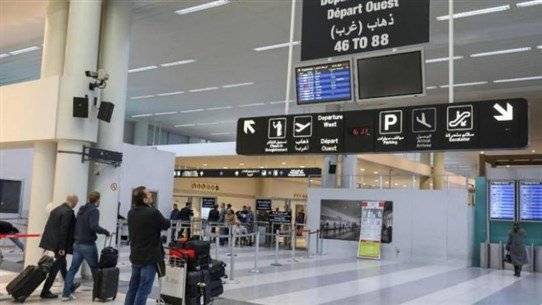On October 17, a protest movement emerged against the corrupt ruling authority in Lebanon. Among the most notable supporters of this revolution were the youth, who were searching for a glimmer of hope to keep them in their country, nurturing some optimism in the possibility of achieving tangible change. However, the post-revolution phase is not the same as before, as Lebanon has plunged into an economic abyss, entering a phase of collapse. Are they still seeking a glimmer of hope today? Several reasons compel young people to flee the dire situation in Lebanon and migrate to other countries that respect their rights and freedoms and uphold their dignity. The youth in Lebanon are not simply leaving their country or aspiring to migrate; they are being forced to do so, departing with heavy hearts, leaving their families and friends behind to secure a future in countries that value their skills and qualifications. This is a brain drain of specialists and skilled individuals; instead of benefiting from them in Lebanon and retaining them, these minds are left for other nations that focus on providing the best incentives to attract and utilize them. How can it be otherwise when Lebanon is drowning in economic, social, living, political, and security problems?
### Desire to Migrate in Numbers
According to a report released by the Central Administration of Statistics and the International Labor Organization, when residents of Lebanon aged 15 and older were asked about their desire to migrate, more than half of them – specifically 52 percent – expressed a desire to leave Lebanon. In terms of age groups, the desire to migrate was higher among the younger demographics, with 69 percent of those aged 15-24 and 66 percent of those aged 25-44 wishing to migrate, compared to only 10 percent among the elderly aged 65 and above. When asked if they had started migration procedures, it was found that 7 percent of individuals aged 15 and older who expressed a desire to migrate had indeed begun the process, with a majority of these, 5.88 percent, stating that the reason for migration was the current economic situation in Lebanon.
### The Reasons are Numerous
According to economic expert Jihad Al-Hakim, the desire of youth to migrate today is multifaceted and not limited only to the decline in living standards and purchasing power in Lebanon, but due to several other factors, including:
- The absence of salary and wage adjustments, which has pushed many workers into a state of despair.
- Declining job opportunities in many sectors such as banking and the public sector.
- The lack of necessary infrastructure to carry out certain professions, such as the knowledge economy, which requires high-quality internet and regular electricity supply.
- The deterioration of the healthcare and education sectors after the migration of many doctors and teachers, prompting many citizens to consider migration. Al-Hakim points out a new migration phenomenon: students migrating immediately after high school graduation to pursue university education abroad.
- The lack of a healthy environment for investment in Lebanon and the absence of financing and loans from banks, pushing many Lebanese to implement their projects in neighboring countries such as Dubai and Cyprus.
- The deadlock and loss of hope in finding any solutions or reforms that could save Lebanon from this crisis.
- The delays in obtaining passports, which leads the Lebanese people to despair and consider migration immediately after obtaining them.
Al-Hakim questions the reason behind these delays in obtaining passports, noting that what is spent on the "Sayrafa" platform in one week could provide the Lebanese people with passports for several years.
### Migration... The Only Solution for Living with Dignity
The Lebanese Center for Studies conducted a survey in April 2022 involving 500 young men and women aged 21 to 29 in the first and second Beirut districts. The study indicated that the responses from youth in these districts were generally similar, with a notable difference in their ranking of the fundamental issues facing Lebanon. The top three problems, according to youth in the first Beirut district, were the economic collapse, challenges related to sovereignty, and lack of accountability. This ranking shifted slightly in the second Beirut district, where respondents regarded the top three problems in the country as the economic collapse, poor services, and lack of accountability.
A striking second pattern was the diminishing trust of youth in the Lebanese government and the political and economic systems of their country. When asked for their opinion on how the government handled two of the most critical crises in Lebanon – the ongoing economic crisis and the response to the Beirut port explosion – most respondents expressed high levels of dissatisfaction.
This widespread lack of trust extends to any new government as well, with the majority of respondents, 55 percent, expressing distrust in a new government, while only a very small minority, 3.4 percent, indicated complete confidence in a new government’s ability to resolve the crisis.
Al-Hakim believes the ramifications of this crisis will be very severe for Lebanon: “The first relates to a loss of approximately 500,000 Lebanese, especially from the youth, within ten years since the onset of the crisis, raising the fundamental question: Who will fill this gap? The second concerns the impact on Lebanon's name and reputation, and consequently the negotiating power of youth with foreign players to find suitable job opportunities and salaries.”




